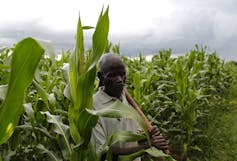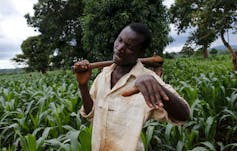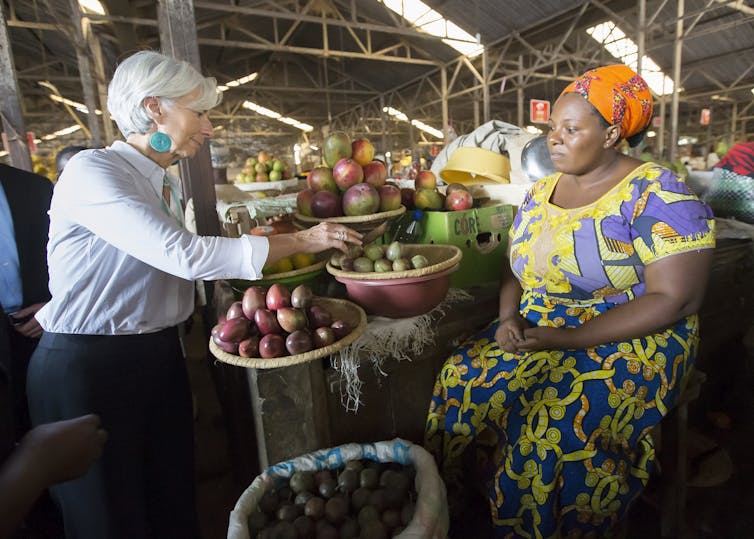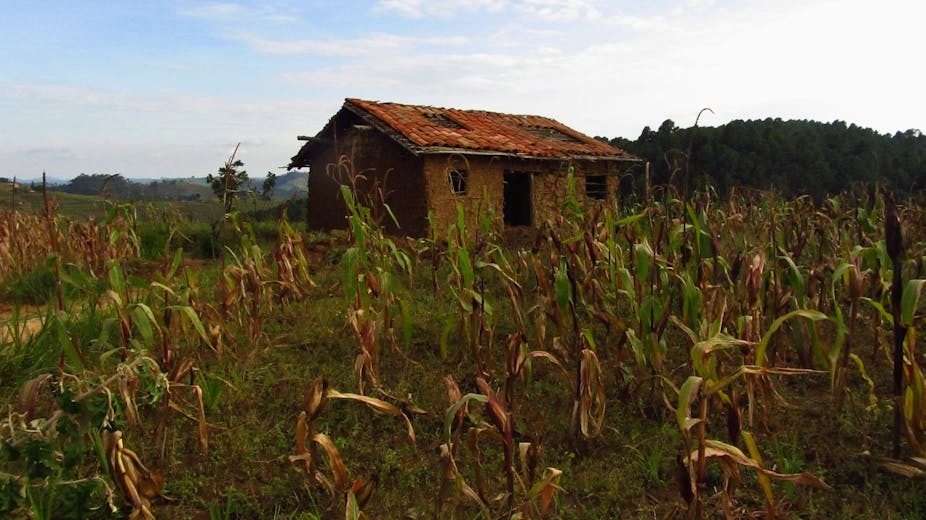A major strategy to reduce poverty in sub-Saharan Africa is through modernisation of agricultural production. The “Green Revolution” policies being implemented promote modern seed varieties and inputs to boost production of marketable crops. This is meant to raise farmers’ incomes, develop their countries’ economies and, by doing so, combat hunger and poverty.
In the 1960s and 1970s similar strategies helped many farmers and transformed economies in Asian countries. Similar attempts yielded poor results in Africa. However, a new wave of Green Revolutions is being implemented across the region. These are justified by governments and donors as an essential response to rising population, limited land and a need for growth to fuel more general development.
This time round the policies have been hailed as transformative development successes. This is based on assessments by governments, economists at institutions like the International Monetary Fund and organisations such as the Alliance for Green Revolution in Africa.
Africa cannot copy Asia’s Green Revolution
But there are good reasons to suspect that the impact of the policies have not all been favourable.
First, conditions facing African countries today are very different from those in Asia some 40 years ago. Then, small-holders could benefit more directly through favourable terms of trade and governments could even fix prices for them.

Second, policies are framed as reaction to a crisis to which “unproductive” traditional farming methods have contributed. The policies are therefore purposed with eradication of the knowledge and practices of those supposed to benefit.
Third, although the policies stand to deeply affect the lives of hundreds of millions of farmers across sub-Saharan Africa, impact assessment is startlingly limited. These are not simple development policies like distributing mosquito nets, but pervasive attempts to alter a key feature of people’s lives: farming.
New research published in World Development provides some profound insights into why this wave of policies must be closely scrutinised.
The authors spent many months talking to villagers in three mountainous areas in western Rwanda to hear about important changes in their lives. The testimonies were quite incongruous with more official accounts of policy impacts and revealed more precisely the revolution they enact.
Farming is more than income generation
In western Rwanda, farmers traditionally cultivate up to 60 different types of crops. They plant and harvest in overlapping cycles to subsist, to minimise chances of hunger. And the associated social systems encompass a way of life central to people’s knowledge and culture.

The mix of crops changes with subtle differences in soil, slope and altitude. Trade and patterns of labour follow these gradients. Each day droves of villagers take sugar cane uphill to trade for potatoes, labourers head to an area knowing there are crops to be harvested and ongoing relationships have formed.
For these reasons farmers consider living a good life to be dependent not purely on income but on their access to farm land, good social relations and on their autonomy to make decisions about how to use their resources.
It’s an order to grow corn. We have no ability to oppose decisions made by the government.
This is in stark contrast to this system the policies spearheading the Green Revolution in Rwanda envision that:
… agriculture in Rwanda should be oriented towards specialisation … to manage the land and use it in an efficient, uniform manner.
The change is not simply promoted to provide additional choices for farmers. It is imposed on the population. The policies designate which crops are to be grown in which region and aim to drive widespread use of new seeds and input technologies. To ensure compliance, they decree that:
… it should be possible for the government to repossess the land if the owner or holder of the land rights has failed to use it in accordance with the law.
Participants in the study did not take this as an idle threat and perceived a very real risk to control over their land. 10% had seen the government take land previously for conservation or reallocation to refugees. Others have seen non-approved crops destroyed by local officials. And fines are commonly handed out for not meeting standards set by a wide array of policies.
As a result, the long-standing knowledge of soils, ecological gradients and associated social as well as economic interactions have, in a flash, been replaced with rules and administrative boundaries.
Who wins, who loses and how?
Importantly the study reveals that in Rwanda only a minority – about one-third of relatively wealthy landholders – were able to comply with enforced modernisation. For those households increases in production and income could be substantial.
But taking part in the new scheme is not easy, and benefits are not guaranteed. Modern seeds cannot be used without fertiliser for which people need to take credit. That requires the confidence to be able to pay money back at the end of the season and to manage to feed your family in the meantime. To comply involves taking a leap of faith, which some take and a few succeed.
The poorer you are, the higher that risk is. Fears of harvesting nothing and the potential for the government to seize their land means many choose to sell up. In recent years 12% of households had become landless labourers, pushing this group to more than one-third of households in the study.
As they shift from subsistence to dependence on sporadic labouring opportunities, people’s incomes may actually increase, yet they have become poorer, stripped of their most valued resource: land. But land scarcity and decline did not affect everyone. In contrast, 16% of wealthier households had been able to increase their holdings, their productive potential and incomes.

Instead of helping the poorest farmers, the policies serve to exacerbate landlessness and increase inequality. The severe repercussions for rural smallholders and for Rwandan society are, incredibly, overlooked through government and donor-led impact assessments.
Their means of measuring policy outcomes neglect the way they disrupt subsistence practices, exacerbate poverty, impair local systems of trade and knowledge, and threaten land ownership.
Implications for agriculture in Rwanda and beyond
We do not advocate that traditional farming practice is superior to any form of modernisation or innovation. But innovation and support that listens to, targets the needs of rural smallholders, and involves their participation is needed and has potential to help the poorest.
Green revolution policies should be subject to much broader and more rigorous impact assessments. Mitigation for poverty-exacerbating impacts should be incorporated specifically. In Rwanda, that means encouraging land access for the poorest and supporting traditional practices through a gradual and voluntary modernisation.
Support for suitable inputs, co-operatives, agro-forestry, soil conservation, permaculture or marketing schemes aimed at widening the available choices of the poorest could all help their situation.
The issues highlighted from Rwanda are relevant to countries across sub-Saharan Africa implementing similar strategies with the same institutions, formula and mode of assessment. Similar results for the poor are emerging from experiments in Malawi, Kenya, Ethiopia and beyond. It is not enough to assume that improvements in the national economy will trickle-down to the poor.
Ultimately, reducing poverty and hunger through farming innovation in Africa requires working with poor farmers – not against them.

